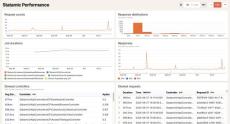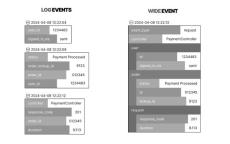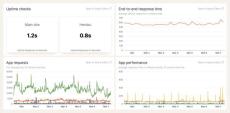- December 2024 (2)
- November 2024 (2)
- October 2024 (4)
- August 2024 (4)
- June 2024 (3)
- May 2024 (2)
- April 2024 (1)
- March 2024 (3)
- July 2023 (1)
- June 2023 (1)
- May 2023 (1)
- April 2023 (1)
- June 2022 (1)
- April 2022 (1)
- March 2022 (2)
- February 2022 (1)
- November 2021 (2)
- October 2021 (5)
- September 2021 (5)
- August 2021 (2)
- July 2021 (1)
- June 2021 (2)
- May 2021 (4)
- April 2021 (5)
- March 2021 (1)
- January 2021 (2)
- December 2020 (2)
- September 2020 (1)
- August 2020 (2)
- July 2020 (1)
- June 2020 (5)
- May 2020 (1)
- April 2020 (4)
- March 2020 (5)
- February 2020 (4)
- January 2020 (1)
- November 2019 (1)
- October 2019 (2)
- September 2019 (2)
- August 2019 (1)
- July 2019 (3)
- June 2019 (1)
- March 2019 (2)
- February 2019 (3)
- January 2019 (2)
- December 2018 (1)
- November 2018 (2)
- October 2018 (2)
- September 2018 (1)
- August 2018 (1)
- February 2018 (1)
- January 2018 (1)
- December 2017 (1)
- November 2017 (2)
Zero-instrumentation, 360 degree coverage of errors, outages and service degradation. Deploy with confidence and be your team's devops hero.
Monitoring — like web development — is complex. Every day we hear about new tools and techniques, but they're usually for big organizations. Ones with dedicated devops teams and so much traffic they care more about “error rates” than individual user experiences. When you're on a smaller team, this doesn't work so well. You know instrumentation doesn’t pay the bills. Customers do. When they encounter a problem you need clear actionable intelligence, not walls of charts and reams of logs.
What if there were a monitoring tool for developers like us? A single tool that could answer at a glance:
- Are any front-end or back-end systems raising errors?
- Is the site unreachable or unusually slow?
- Are scheduled tasks completing as expected?
- Which customers have been affected by errors today?
Honeybadger is used by tens of thousands of pragmatic developers in companies of all sizes who want to focus on shipping great, error-free products instead of wasting time building and maintaining a bespoke monitoring stack.















